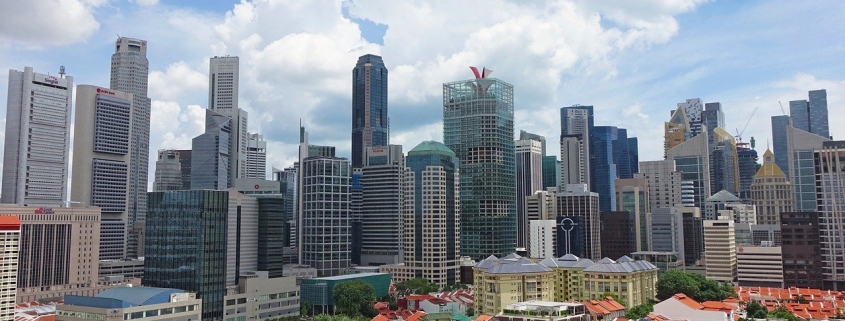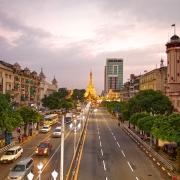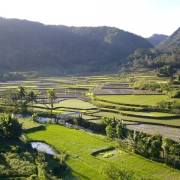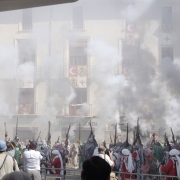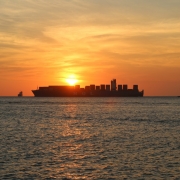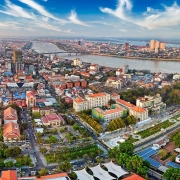Why was Singapore separated from Malaysia?
Topic of Study [For H2 History Students]:
Paper 2: Regional Conflicts and Co-operation
Source Based Case Study
Theme III Chapter 1: Inter-state tensions and co-operation: Causes of inter-state tensions: racial and religious divisions, ideological differences
Historical Context: Merger with Malaya
On 16 September 1963, the Federation of Malaysia was established, comprising of Malaya, Singapore, Sarawak and North Borneo. Before the Federation was formed, a White Paper was published in November 1961 to outline terms of Singapore’s entry into Malaysia, such as the revenue contribution to the federal government and the creation of a common market between Singapore and Malaysia. However, there were political differences between the two governments that had affected the sustainability of the merger.
The Federal General Election of 1964
Following the Tunku’s contestation in the 1963 Singapore General Election, the People’s Action Party (PAP) participated in the 1964 General Election in Malaysia. Although the PAP had only secured one seat, extremists from the United Malays National Organisation (UMNO) viewed their non-communal style of politics had threatened the party’s interests. A smear campaign to discredit the PAP begun, which later culminated in the communal riots in July and September 1964.
Following the 1963 Singaporean elections, relations between UMNO and the PAP, with their competing multiracial visions quickly soured…These tensions began to be reflected in strained Malay-Chinse relations in Singapore, which were exacerbated when the Singapore-based PAP won a seat in the suburbs of the federal capital, Kuala Lumpur, in the general election in peninsular Malaysia in April 1964 by campaigning on the slogan of a “Malaysian Malaysia.” In this toxic political climate, the usually peaceful Malay procession to celebrate the Prophet Muhammad’s Birthday in Singapore quickly deteriorated in July 1963 into riots between Chinese secret society and Malay ultranationalist gangs.
An excerpt from “Multiculturalism in the British Commonwealth: Comparative Perspectives on Theory and Practice” by Richard T. Ashcroft and Mark Bevir.
Money matters: Disputes over tax and revenue contributions
On 25 November 1964, the Malaysian Finance Minister Tan Siew Sin brought up the Malaysian budget during the federal parliament. The budget sought to raise M$147 million through a policy of taxation, in which Singapore was required to contribute 39.8%.
In response, the Singapore government rejected the proposal on the basis that the disproportionate amount would harm businesses and labour-intensive industries.
Then, the minister stated that Singapore had to increase its revenue contribution to the federal government from 40 to 60%. Again, the Finance Minister of Singapore, Dr Goh Keng Swee, responded by stating that the 60% was not ‘equitable’.
These arrangements did not work out even though the Malaysia Agreement was signed on 9 July 1963, which included the creation of a common market.
The Malaysian Solidarity Convention: Multiculturalism in Malaysia
On 9 May 1965, the Malaysian Solidarity Convention was formed with the aim of fighting the spread of communalism in the Malaysian Federation.
The convention involved six political parties, comprising of the following:
- Singapore – People’s Action Party
- Sarawak – Machinda Party and United People’s Party
- Peninsula Malaysia – People’s Progressive Party and United Democratic Party
Yes, we have got differing points of views, different experiences, different parties. But I tell you two things brought us together; one, the fact that we are Malaysians and not communalists; second, the fact that is spite of all this truculence, we are still talking for Malaysians on behalf of a Malaysian Malaysia towards a Malaysian Malaysia, and we will continue to do so.
An excerpt from Prime Minister of Singapore Mr. Lee Kuan Yew’s speech at the Malaysian Solidarity Convention at the National Theatre, 6 June 1965.
The convention sought to advocate the concept of a ‘Malaysian Malaysia’, so as to preserve the unity and stability of the Federation. As a result, the federal government objected to the convention, particularly during the parliament meeting on 25 May 1965.
From then on, the Tunku decided that the removal of Singapore from the Malaysian Federation was the only way to mend the political fissures.
The Separation: A different Singapore
On 9 August 1965, Singapore was declared independent. The Tunku made a similar announcement on the separation to the federal parliament in Kuala Lumpur. During a press conference, Prime Minister Lee explained why the separation took place.
But I would say that the Tengku convinced me and he told me that he could not go on holding the situation much longer and that he could see real trouble in Malaysia if Singapore continues to be in it.
…You see, this is a moment of … everytime we look back on this moment when we signed this agreement which severed Singapore from Malaysia, it will be a moment of anguish.
…There is nothing to be worried about it. Many things will go on just as usual. But be firm, be calm. We are going to have a multi-racial nation in Singapore. We will set the example.
An excerpt from the transcript of a press conference given by the Prime Minister of Singapore, Mr. Lee Kuan Yew, at Broadcasting House, 9 August 1965.
What can we learn from this article?
Consider the following question:
– How far do you agree that political differences most significant in affecting Singapore-Malaysia relations?
Join our JC History Tuition to learn more about regional conflicts and co-operation, such as the Merger and Separation. The H2 and H1 History Tuition feature online discussion and writing practices to enhance your knowledge application skills. Get useful study notes and clarify your doubts on the subject with the tutor. You can also follow our Telegram Channel to get useful updates.
We have other JC tuition classes, such as JC Math Tuition and JC Chemistry Tuition. For Secondary Tuition, we provide Secondary English Tuition, Secondary Math tuition, Secondary Chemistry Tuition, Social Studies Tuition, Geography, History Tuition and Secondary Economics Tuition. For Primary Tuition, we have Primary English, Math and Science Tuition. Call 9658 5789 to find out more.

